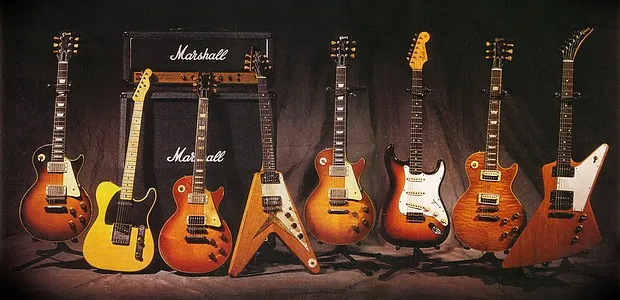Table of Contents
Today in Rock History is a music orientated segment where we would like to encourage readers to share their thoughts and tastes in music and discuss the various aspects of any music topic. This post is not limited to rock music. You are encouraged to bring anything music-related along that you would like to share, either by typing the name of a song and artist into the comments section or by sharing a youtube, Vimeo, Spotify or SoundCloud link. If you are unsure how to add a link, simply write the name of the song and the composer and someone may very well do it for you.
Music is a huge part of peoples lives even if we aren’t all music enthusiasts. Music is all around us in advertising, background noise in shops and on the streets. It’s inescapable when you have teenagers but for most of us, it is a huge part (if not a ritual) of our lives that we feel close to.
So kick back and enjoy Nechtan’s Today in Rock History playlist and see what new gems you discover.
Today in Rock History:
Born today in 1944, Clarence White (Clarence LeBlanc) guitarist with The Byrds.
Born today in 1958, singer, songwriter and multi-instrumentalist Prince (Prince Nelson).
Today in 1963, The Rolling Stones released their debut single “Come On”.
Today in 1969, Blind Faith performed their only live performance at a free concert in London’s Hyde Park.
Today in 1971, Carole King’s album “Tapestry” was awarded a Gold record.
Today in 1975, Elton John went to number 1 in the US album chart with “Captain Fantastic and the Brown Dirt Cowboy”.
Today in 2011, Def Leppard released their first live album “Mirrorball – Live & More”.
Died today in 2012, Bob Welch songwriter, singer and guitarist with Fleetwood Mac and solo aged 66.
Please feel free to share this article to a social media platform of your choice. Help keep rock alive!





